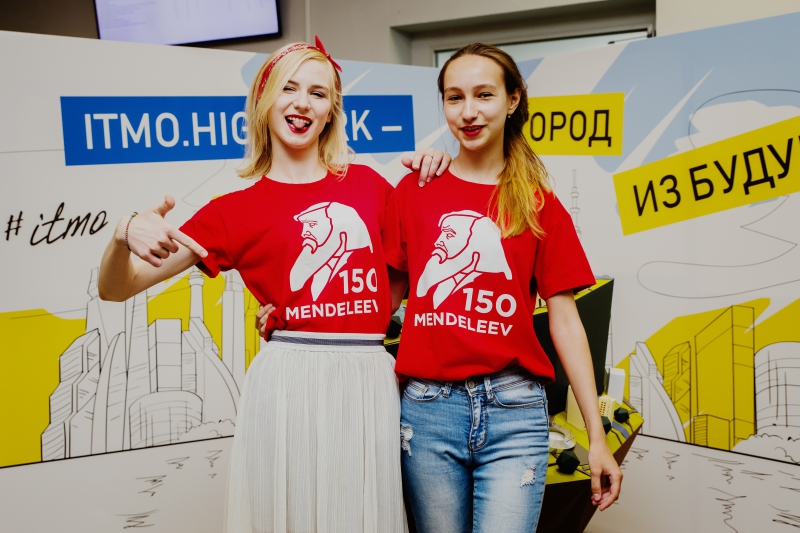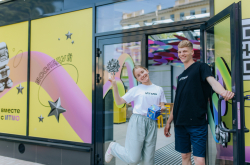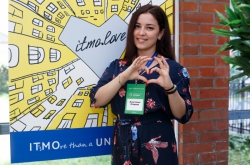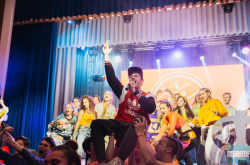Then and now; move the slider and see how our trailblazers have changed in their first year! Tired eyes, early wrinkles, and grey hair… They have none of that.
Nadezhda Maksimenko – conducted a research project on microplastic in natural water systems

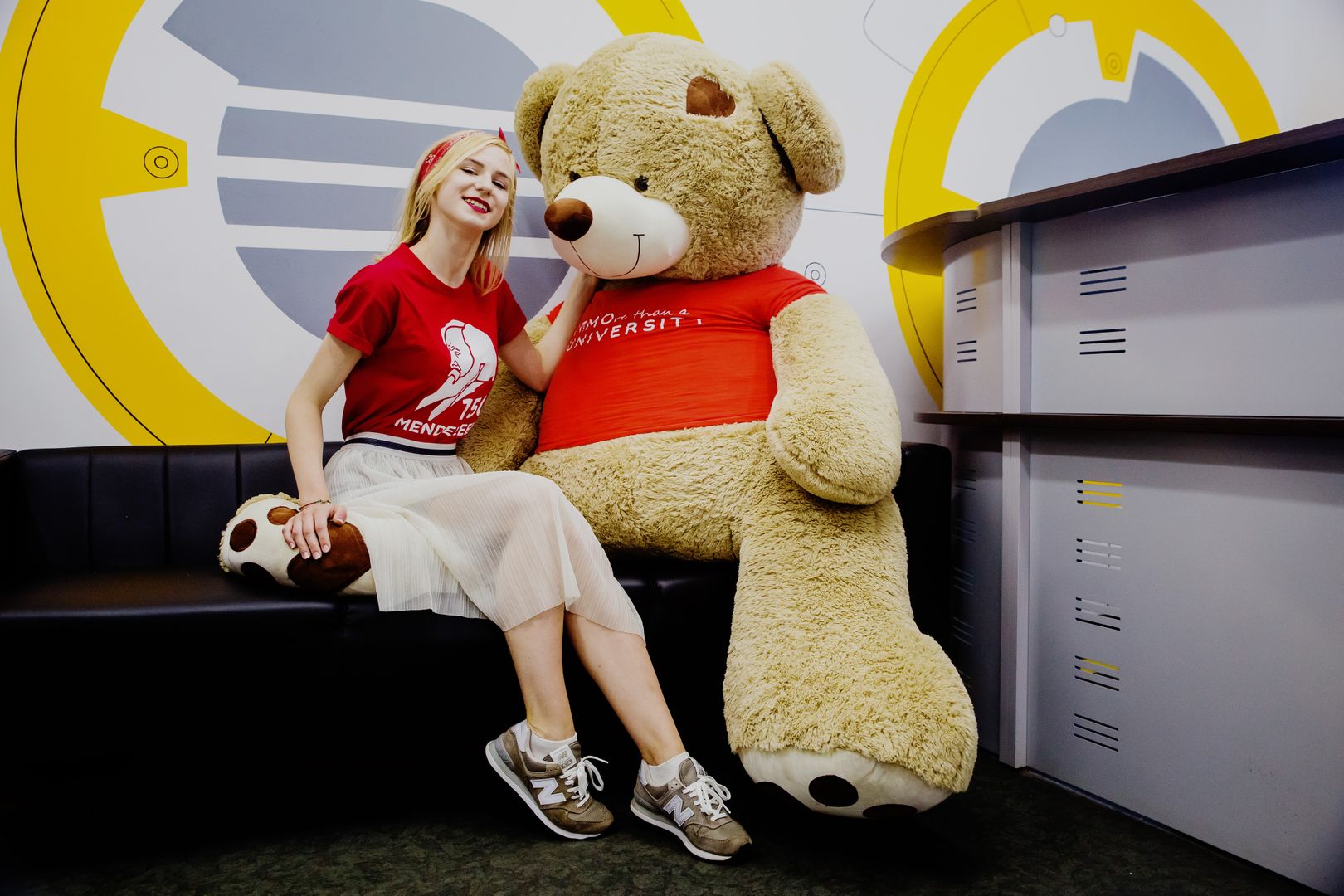
I’m still working on my project. When I came to ITMO, I already had a tested method for the detection of microplastic in water that could be easily used in schools: it’s simple and doesn’t require any expensive or complicated equipment. I took part in a seminar organized by the Green Projects Consulting Institute and the Russian Junior Water Prize, where we showcased our method to members of various environmental organizations, who expressed their interest in our invention. You could say that this year I’ve been promoting this project, while the team at ITMO’s International Institute of Bioengineering, which I’ll soon join, has been developing its technical aspects.
I’ve also become involved in new initiatives. I am now part of the organizing team for the Mendeleev 150 international conference, and I’m also working with the team’s head, Mikhail Kurushkin, on integrating VR technologies into education, namely the chemical disciplines. We’ve already submitted an article, of which I am a co-author. I couldn’t even imagine that my first year at the University would be so intense.
Danil Zmievsky – developed a bilingual electronic dictionary of proper names based on the Spotlight 10 textbook text corpus


In his first year at ITMO: honed his technical skills to continue work on the project, got into CrossFit and academic rowing
My entry project is an offline program that assists in the translation of proper names from English to Russian. This issue doesn’t get enough attention, and there are no dictionaries of proper names even though their translation often causes trouble. The project has technical and linguistic components: I developed a desktop app for a specific textbook with a database of names. By the time I came to ITMO, I’d already had some help with the technical bits, but after a year of studies, I myself possess the necessary skills to continue this work.
In the past year, other projects have also attracted my attention. Since we’re studying machine learning, I became interested in creating my own neural network. Interdisciplinary projects in general really interest me; I’d like to apply my technical skills in the humanities.
Ekaterina Mashina – developed an informational support and coordination system for hi-tech prehospital medical care for use by municipal volunteer brigades


In her first year at ITMO: formed an inter-university team for her telemedical project PersonalMedHelper, took part in several scientific conferences, received a grant from ITMOStudents.Initiatives, joined KronBars sports club’s cheerleading team
I came to ITMO with an idea and a plan on how to implement it. Eventually, we formed an inter-university interdisciplinary team made up of students from ITMO University, St. Petersburg State University, and the Lomonosov Moscow State University. Some of ITMO’s teaching staff also became involved.
We’re currently working on a semantic dictionary with several functions, one of which is to help users gauge the level of a medical specialist’s proficiency. We’ve already presented the project at several events, including the Congress of Young Scientists, and published some articles. In the upcoming academic year, we plan to provide a scientific report on our dictionary and involve some specialists on machine learning.
When I came to ITMO University a year ago, I couldn’t have fully imagined the scope of the work I’d have to do to complete my project. But today I can say with confidence that everything that has been planned will be accomplished, thanks in part to the knowledge and skills I’ve acquired here. I’m glad to know that I was right not only in my choice of university but my choice of the subject area, too.
Ilya Glebov – discovered a major vulnerability in the VK social network

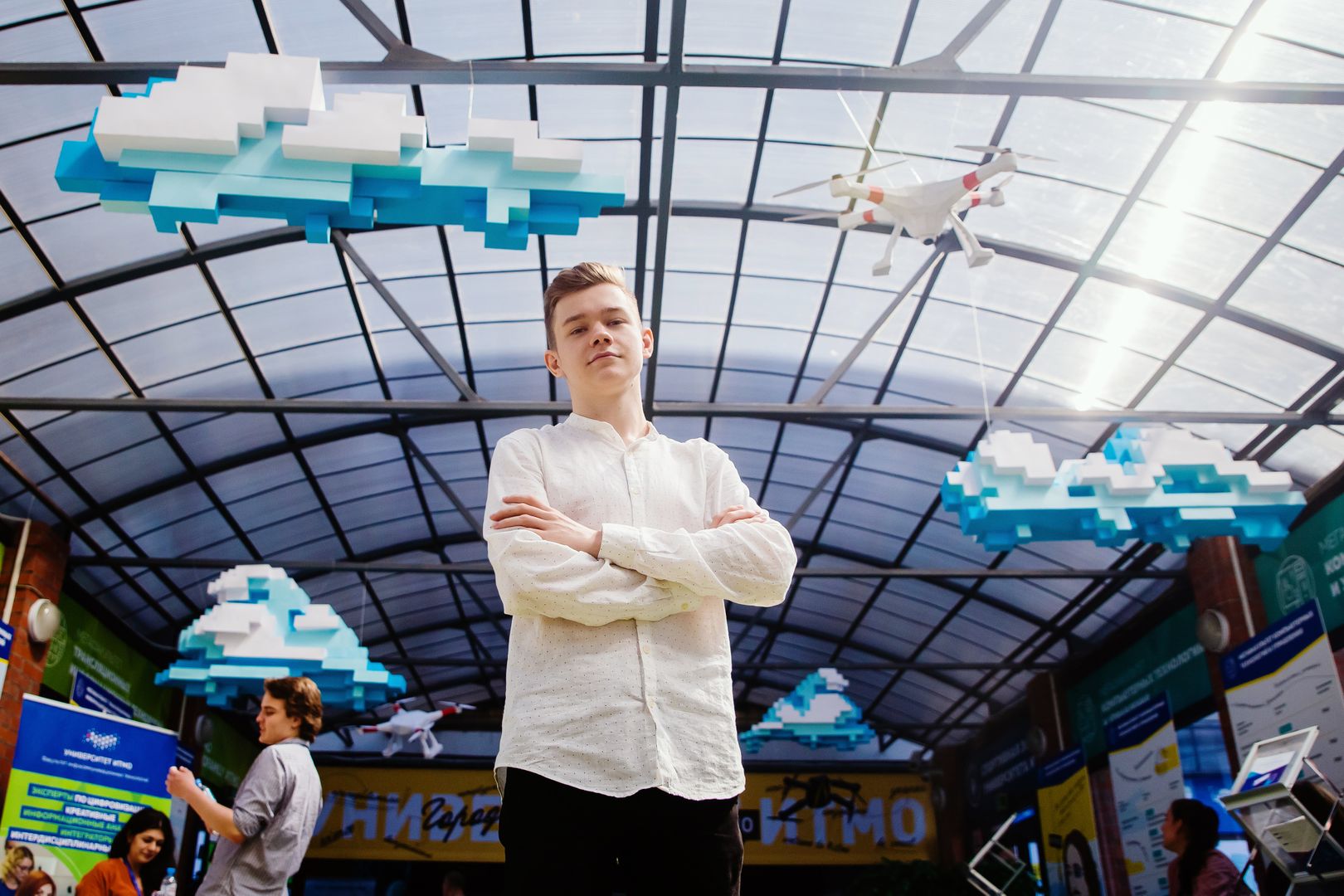
In his first year at ITMO: switched to a tuition-free position and became a regular participant of Capture the Flag competitions
I enrolled a year earlier than the rest of ITMO.STARS initiative's first batch of winners, so I was a trailblazer of sorts. To me, the second year of studies was the most productive; I became more involved in various Capture the Flag (CTF) competitions. This spring, for instance, our team went to Yekaterinburg to take part in Russia’s biggest cybersecurity competition RuCTF and won the third prize. There are several CTFs happening each week, so I try to take part when I can, as well as train with the SPbCTF community. To me, these events are a way to learn about new things in my field and witness new methods and technologies. From what I’ve seen, only about five percent of all students take part in such competitions, but the ones who do are very well-versed in cybersecurity.
Alexander Blashenkov – the author of Straylight, a corporate intranet web-application


In his first year at ITMO: continued work on Straylight and began development on a Telegram bot
The app which I used to get into ITMO University was already functional. It’s quite similar to ITMO’s intranet system ISU, which is familiar to all of its students and employees, but it’s much simpler and for a different audience. I still developed the program further in my first semester and expanded one of its features (dynamic forms; a bit like Google Forms, but with a branching-out system) into a separate project.
The project I’m working on right now is directly related to ITMO University: I develop a Telegram bot (@trallDE) that informs students about the points they’ve earned via the Distance Learning Center’s online platform, the interface of which is not that comfortable. The bot checks the students’ scores on a regular basis and sends updates to the users. I’m also planning to allow study group heads to view their group’s scores.
Ignatiy Ponomarenko – developed a self-written graphics editor; 2nd-place winner of the ITMO-VK Competition


When I was in school, I attended computer classes and created an image editor quite similar in function to Paint, but with a more minimalist design. That project got me into ITMO University.
I’ve enjoyed my first year at the University, working on lab assignments in programming, writing a Telegram bot, and working with the VK API. I’m also fond of the teaching staff, who have been very helpful.
Elizaveta Punchenko – participant of scientific conferences and author of two Higher Attestation Commission-indexed publications

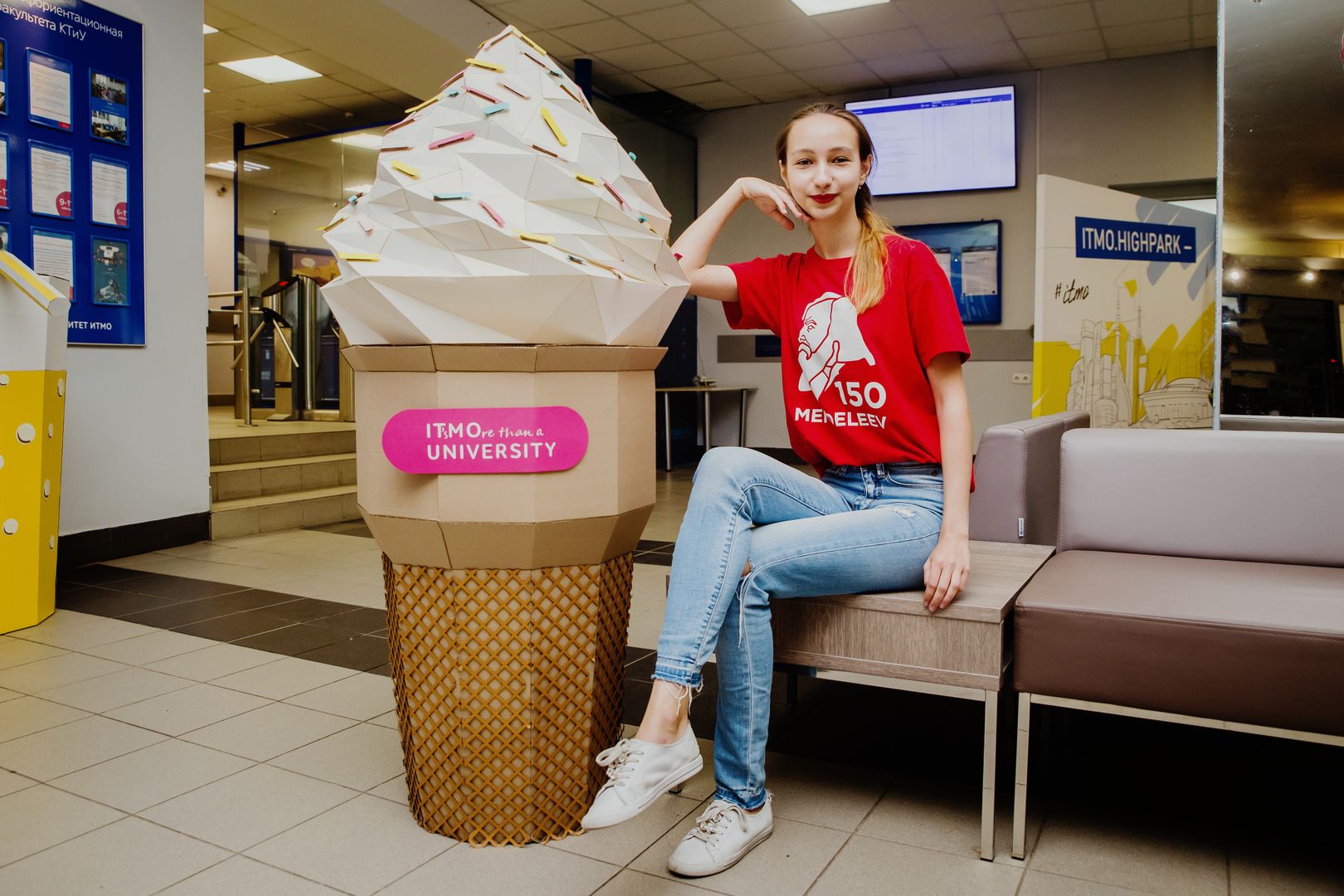
In her first year at ITMO: continued her research and became the deputy chairperson of the Mendeleev 150 conference’s organizational committee
I’m still working on the project described in one of the two articles that helped me enroll at ITMO. It’s a study on fermented milk products, namely the effect of bacteriophages on Staphylococcus aureus bacteria. This is a popular topic in science these days. Until recently, Europe and the US did not recognize the value of bacteriophages due to how hard they are to control. In other words, you have to know exactly what’s wrong with your fermented dairy product if you want to fix it with bacteriophages. Solving this issue will make many things in the dairy industry and beyond it easier.
I’m also involved in the organization of the Mendeleev 150 international conference as the deputy chairperson. It’s a large-scale event, and I could not even have imagined being involved in something like this in my first year of studies. I actually expected to just study a lot, but now I’m thinking about how to maintain the level of intensity of the first year throughout my next three years.
Daniil Shakhbanov – developed a high-level search algorithm
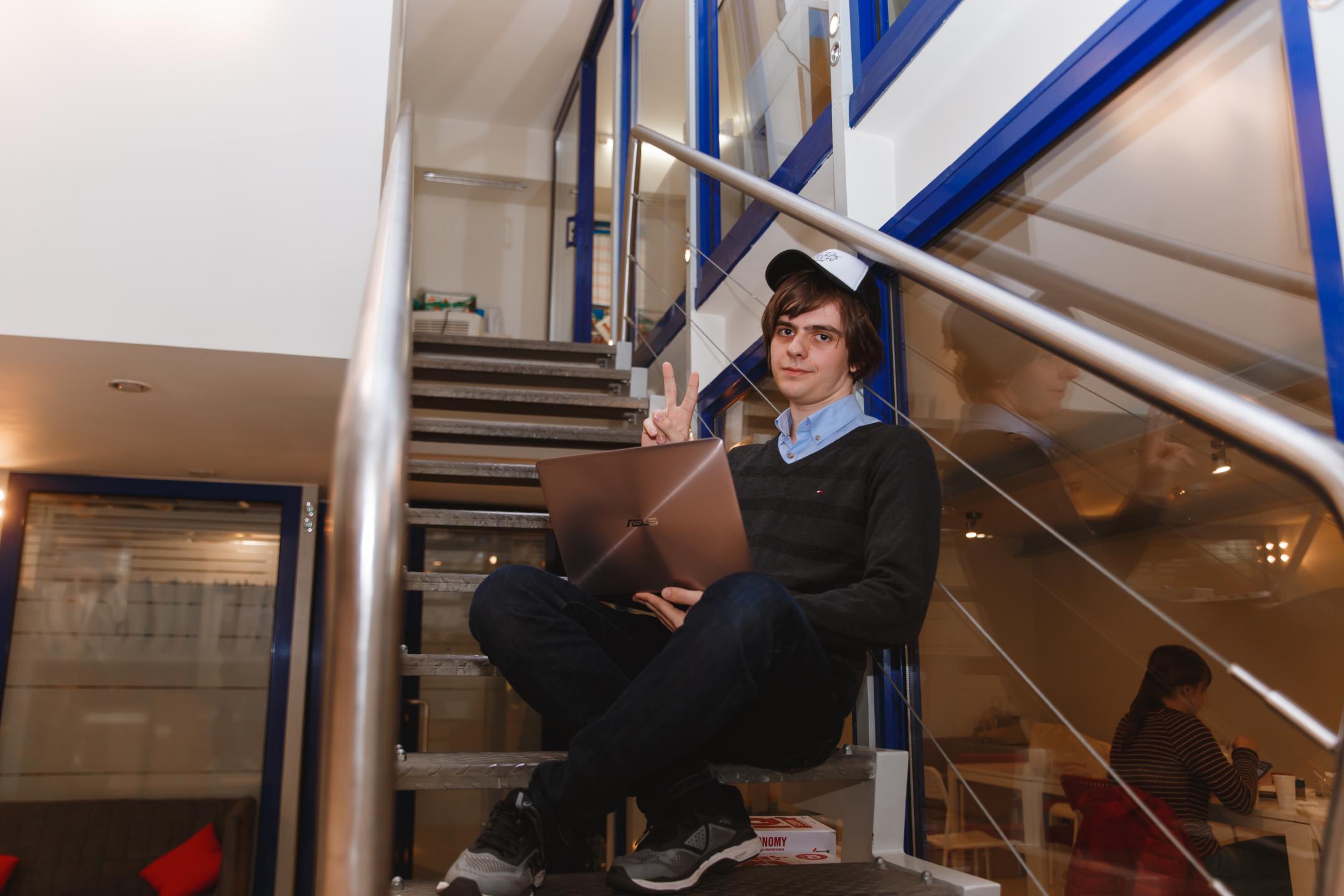

The project I included in my application is complete. I’ve not gotten involved with any new ones, as I decided to focus on my studies in the first year. I think that’s the way it should be. I really liked the way English is taught here, which is important since ITMO does a lot of international collaboration. On the whole, there have been many new opportunities for self-development introduced at the University this year, and it’s hard to pick just one direction, which is why I’m doing a bit of everything until I understand what I really want.
Daniil Nechaev, winner of the World Robot Olympiad 2017


In his first year at ITMO: continued taking part in various robotics competitions
This year I’ve begun working on many new projects, competition-related and otherwise, but I also expect that, after some time, I will return to some of the things I worked on before becoming a student and improve them further.
Some of my first year’s most successful projects were the robot ELSA and the LEGO Education Helper project, which got me and my colleagues a gold prize at the National Robotics Olympiad WRO-2019 at Innopolis (Tatarstan).
Right now we’re in Australia, where we brought ELSA to compete in the international robotics competition RoboCup 2019. It’s great here. This past year, I’ve been building robots and working on projects. I was just studying and enjoying it all.
Alexandra Klebleeva – the winner of a business project competition with a proposal on a Viking-themed tourist spot

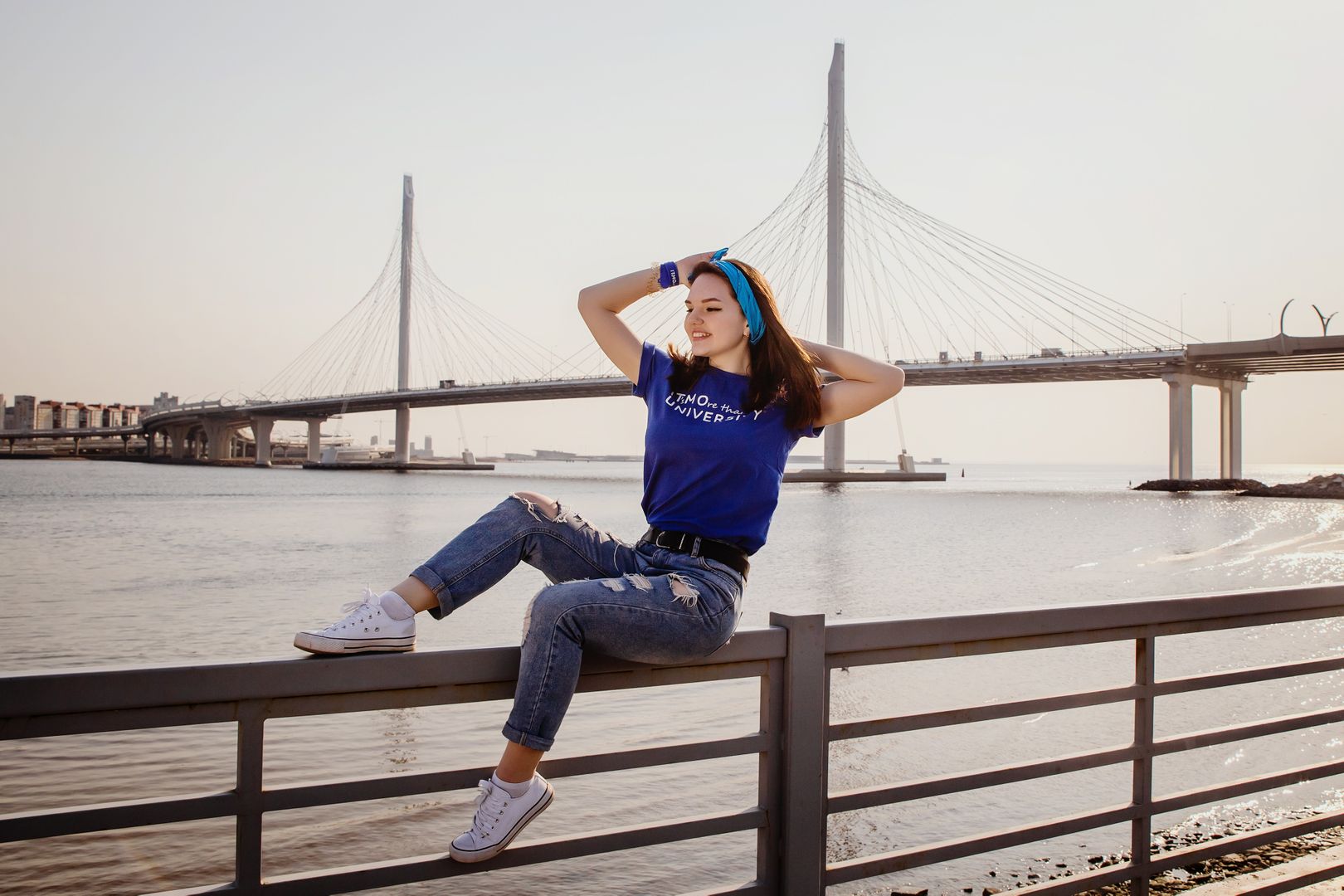
In her first year at ITMO: began developing a mobile app, passed her exams with straight A’s, joined the ITMO.STUDENTS initiative
In my time here, I’ve gotten involved in a new project, which I created recently in preparation for my exam in Entrepreneurial Psychology. It’s a mobile app that connects investors and project managers. There are other apps like it, but they usually tend to be one-sided. They’re either all about the investors or all about the projects; my app helps both find each other, which should make the search easier.
My first year at the university has gone by quickly. I became very engrossed in my studies and was a bit surprised to have passed my exams with straight A’s. As for extracurricular activity, I only managed to get into it near the end of the academic year. I met some of the people from ITMO.Students and learned about the opportunities offered to students working on their projects. This summer I’m going to think about student-focused projects we could implement at ITMO. I’d like to spend more time on research and even deliver a report at the Congress of Young Scientists. I learned about some of the opportunities late, so I can’t wait to catch up on them in the next year.
Alexander Lider – created a robot that won in the Control Award nomination of the First Tech Challenge (FTC) Asia Pacific international robotics competition
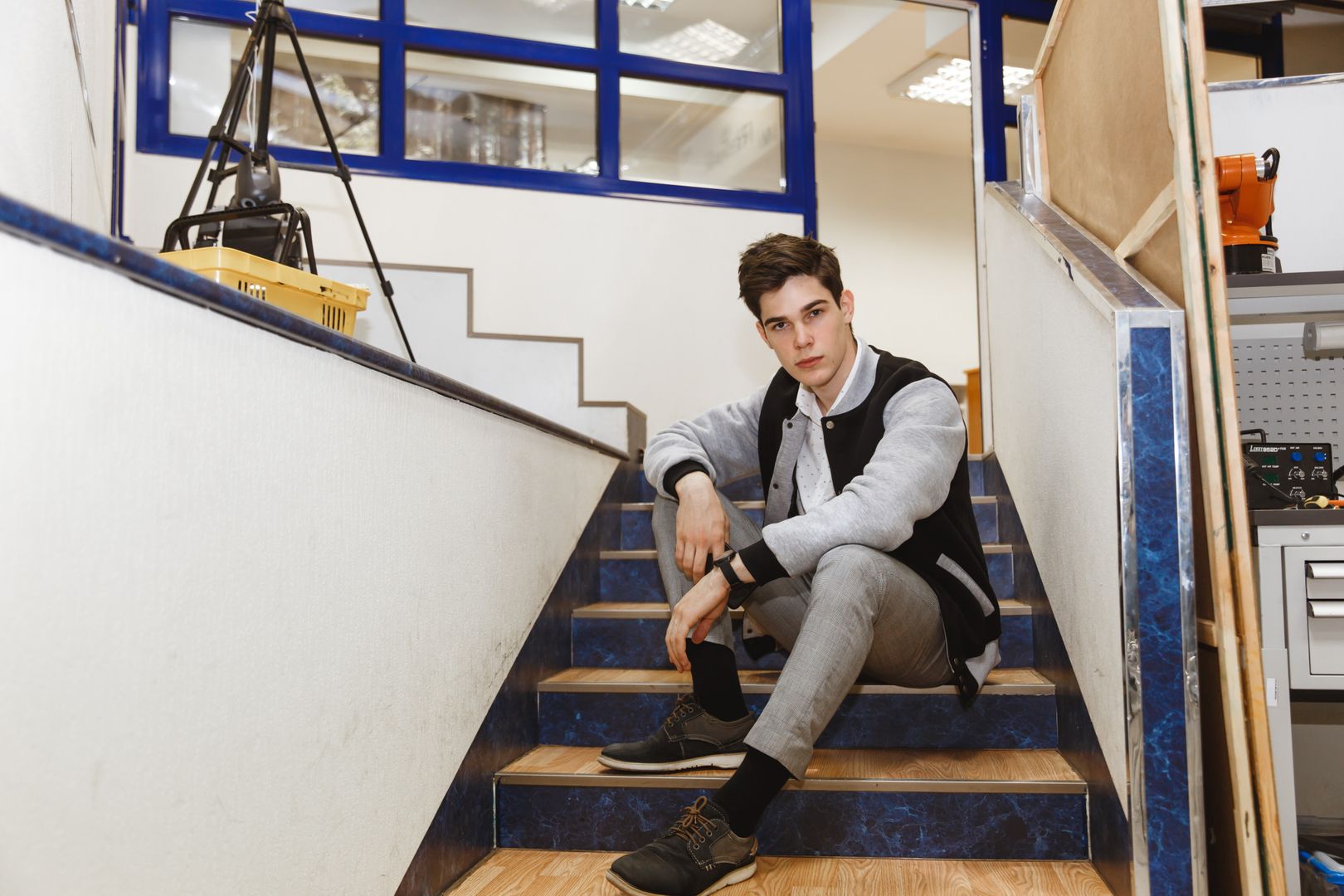
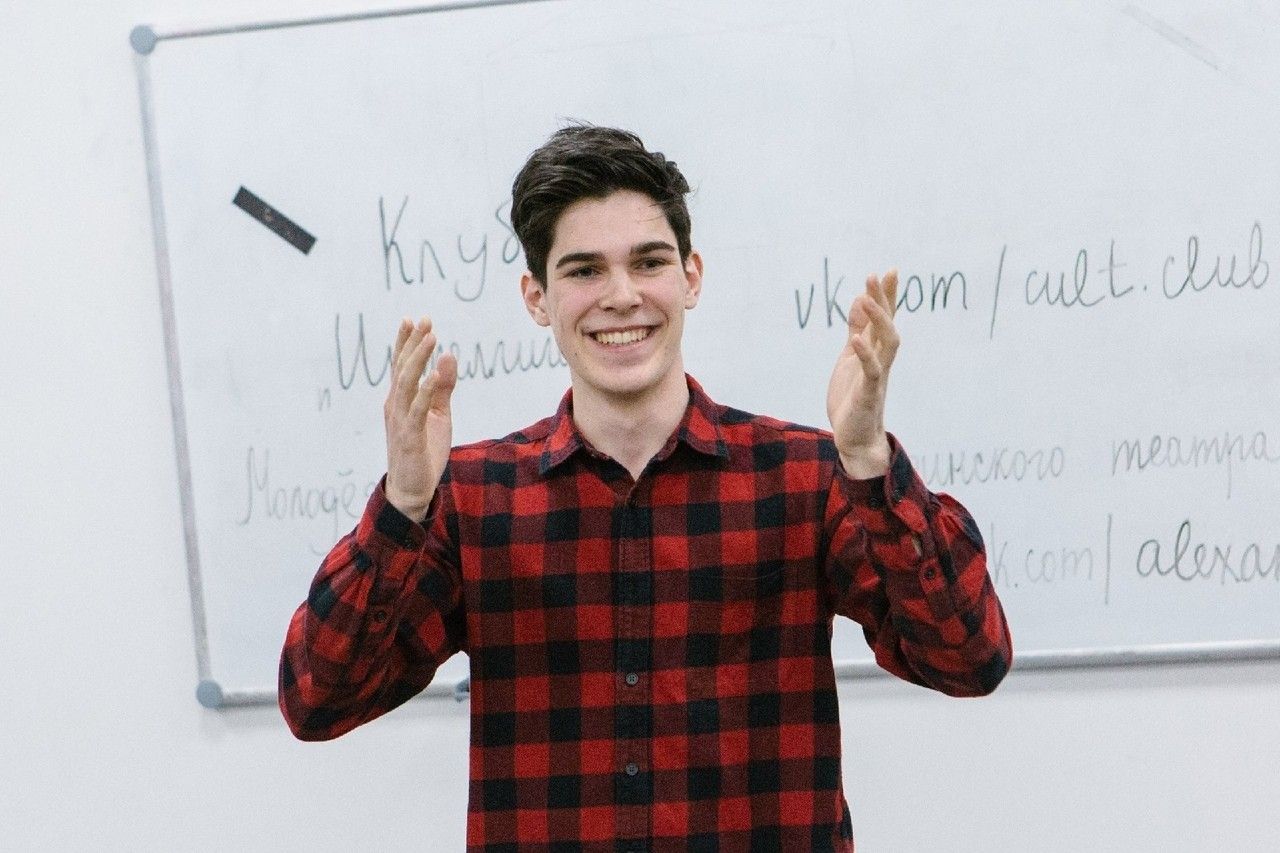
First tech challenge was an interesting and undoubtedly beneficial experience. Building a robot for that event can hardly be called a project; it’s more like a practice-oriented educational process. The rules change every year, and teams, having acquired some experience in the previous season, must create something new. I’m no longer taking part in the competition today. There are plenty of new opportunities at ITMO University and several interesting projects I’m involved in. The University’s FabLab has been a lot of help in providing me access to professional equipment for my needs.
I’ll remember this first year for the new people I’ve met and, of course, the great deal of extracurricular activity you can take part in. Acting workshops, for instance, have been an awesome addition to my classes.
Evgeny Dolgosheev – developed a text-based Tic-Tac-Toe app using C++ and the game Evolving Missiles using JavaScript with the p5.js library
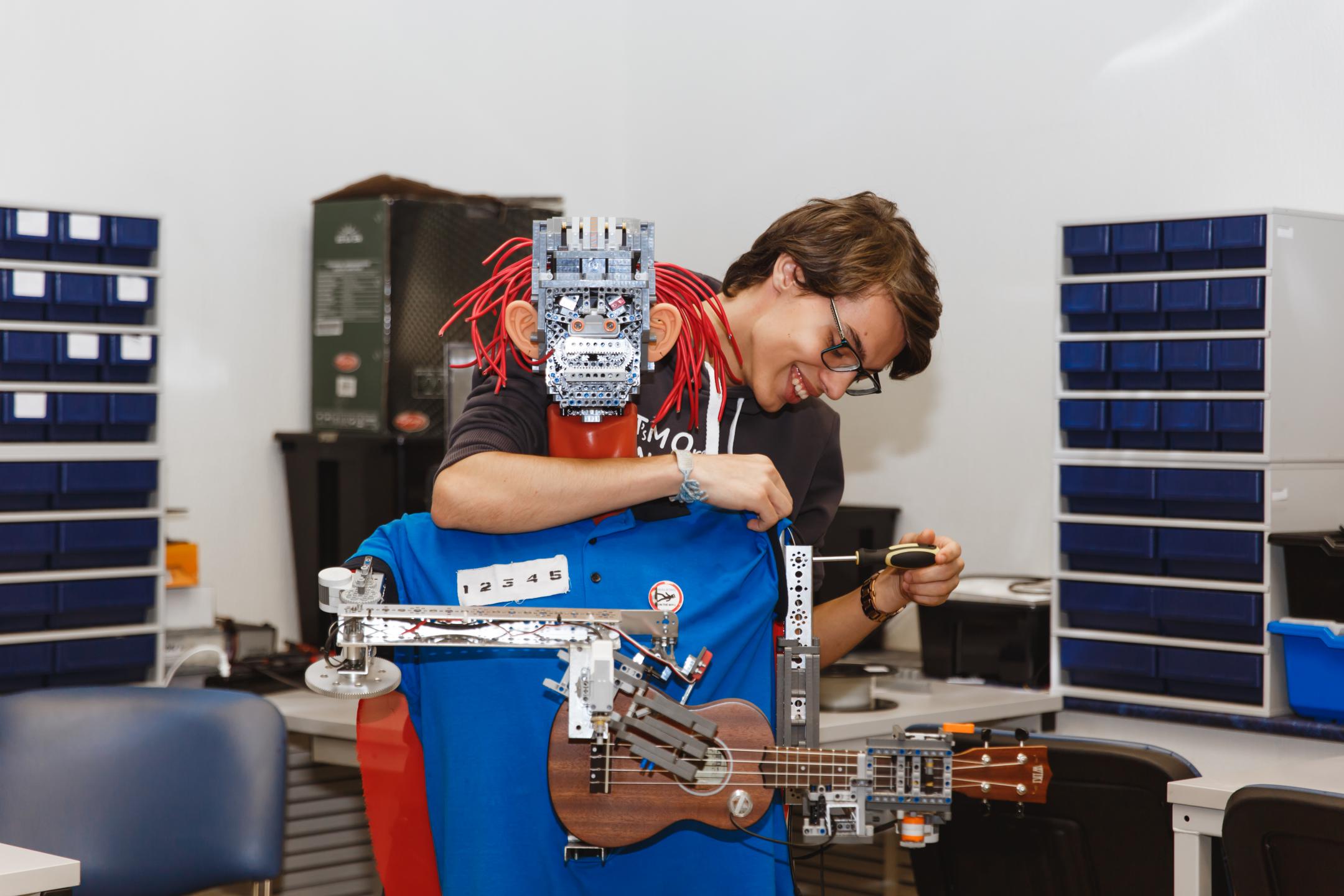

I’ve been busy with my studies this academic year, but I’ve still found a few ideas that I’m currently working on. They are all related to programming in one way or another. A groupmate of mine and I, for example, are currently working on a gaming chatbot for VK.
What made this year memorable was the pleasant atmosphere at the University; it’s very welcoming here and everything is made for students, which is great. The city is new to me, as well. I came here from Vladivostok, so it has been a year full of impressions.
Alexander Dupak – developed a mobile robotic reconnaissance platform
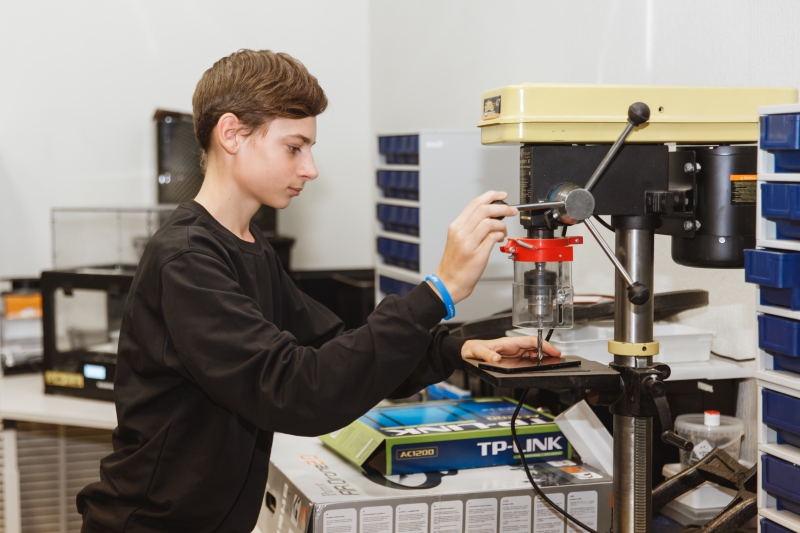
Student of the program Intelligent Robotics
In his first year at ITMO: developed a number of small projects and fell in love with lab assignments
This year I’ve been improving some of my robot’s parts, but there wasn’t enough time. In my first month, I was going to take part in a competition until I realized how many lab assignments I had to complete. This is something you have to be ready for.
I tried to combine minor projects (an inertial navigation system, an automated plant watering system, a mobile manipulator, a VK bot, and others) with my studies and read scientific articles to find new ideas. I also took part in the competition I Am a Professional, where I acquired some “battle” experience in regards to practical tasks.
Before I became a student, I imagined it a bit differently and planned to do more project work. In fact, the program I’m studying in aims to provide the basic skills crucial to my future development. I love working on lab assignments and learning new things, as I chose a subject which I was familiar with and genuinely interested in.
Sergey Fedorov – finalist of Sberbank’s AI Hackathon for school student; recipient of a special diploma at the 28th Sakharov Readings International Conference
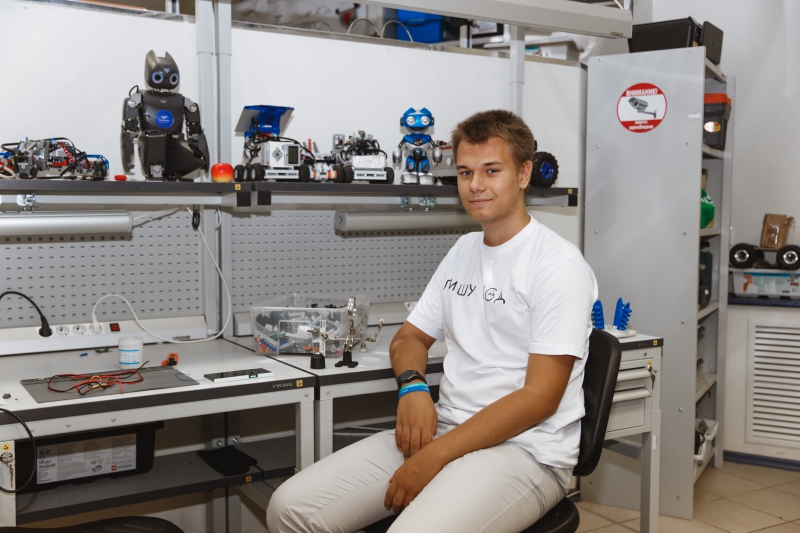
Student of the program Intelligent Robotics
When I applied to be a student, I had an understanding of what I wanted to do in the future and a portfolio that showed my familiarity with that field. The admissions committee found that sufficient.
In my first year, I was less involved in project work and more in “expansive self-education”. I joined a club, learned about machine learning, went to a hackathon, and got accepted into an intensive course at Tinkoff Fintech. I was among the top students and got an internship proposal. I also took some online courses, so you might say it’s been a productive year. Overall, this year has been one of constant learning.
